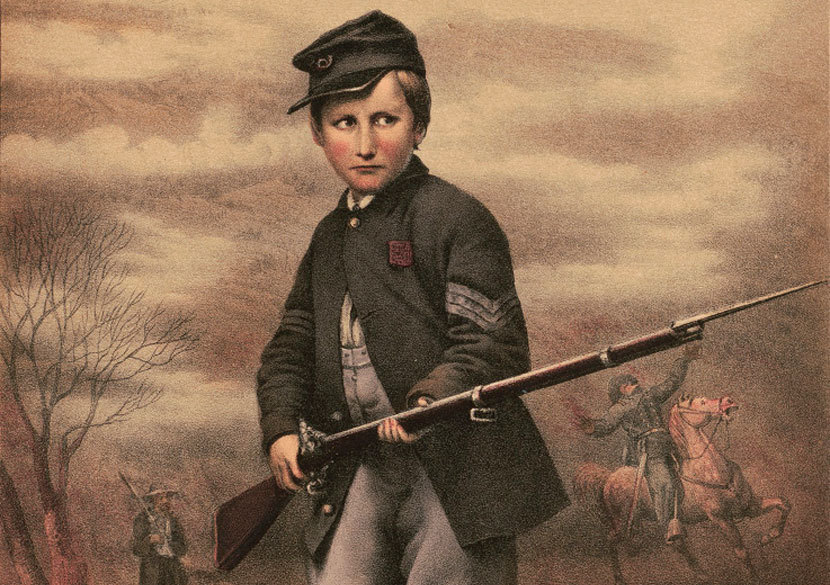Ambrose Bierce (1842–1914?)
From Ambrose Bierce: The Devil’s Dictionary, Tales, & Memoirs

This Saturday, June 24, marks the 175th anniversary of the birth of Ambrose Bierce.
Bierce is perhaps best known today as the author of The Devil’s Dictionary, and many readers regard his horror fiction as the literary bridge from Poe to Lovecraft. But he was (and is) also famous for his war stories—and for his own tenure in the Union Army during the Civil War. He initially enlisted at the age of 19 for three months’ service in April 1861, merely a week after the beginning of the war, but he reenlisted for three years and subsequently participated in several major battles, including Shiloh and Chickamauga. He was seriously wounded by a bullet to the head at Kennesaw Mountain.
A quarter century later, he reimagined the battle of Chickamauga through the eyes of a six-year-old boy in one of his most famous stories, which we present as our Story of the Week selection. Bierce’s war writings would influence Stephen Crane’s The Red Badge of Courage and other stories about the war, which ended six years before Crane was born. The younger writer’s undisguised homage seems to have at first flattered the veteran, but eventually both Crane’s success and his repeated forays into writing wartime stories caused Bierce to dismiss him, rather acerbically, as a pretender.



